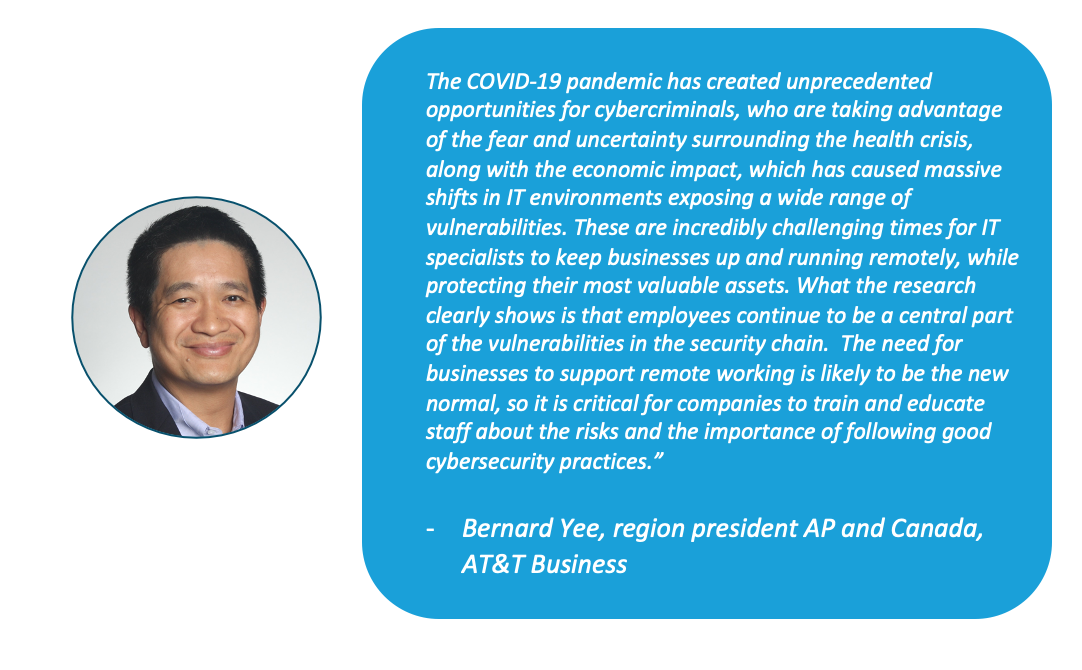Remote Workers Lead to Increased Cybersecurity Risks
Asia Pacific cyber experts: Remote workers are putting our businesses under increased threat of attack
What’s the news? AT&T* commissioned research across three major markets in Asia Pacific shows 64% of companies surveyed believe they are more vulnerable to cyberattacks as a result of remote working arrangements brought on by the COVID-19 pandemic. Of the 500 IT decision-makers included in the study from Hong Kong, Australia and Singapore, 90% currently have employees working from home. The rate is highest in Singapore at 97%, which has seen strict rules imposed to cope with the pandemic.
Why is this important? While overall preparedness for remote working was high across the region, with 91% of IT managers saying they were prepared for work from home arrangements, the responders identified several areas of concern. WiFi networks represent the biggest (39%), followed by cloud storage (38%), email (36%), new technologies such as 5G and IoT (34%), remote devices (32%) and video conferencing solutions (31%). Remote devices are amongst the biggest concerns for users in Hong Kong (46%).
Aside from the logistical challenges of enabling remote working, the survey has highlighted the new range of security threats employees are exposed to. Over 38% of remote workers are using personal devices or company issued devices for both work and personal use. More than one-third are accessing the web and business applications via private WiFi networks, rising to 46% in Hong Kong. With the rush to implement remote working, over one third (35%) of users are accessing corporate networks from devices not managed by the company, with the highest levels in Singapore at 44% compared with 25% in Australia.
What is the solution? Employee training, cybersecurity monitoring and support from external security providers are key to reducing vulnerability to cyberattacks. To improve awareness and understanding of the risks 51% of respondents said companies should encourage staff to care more about cybersecurity by sharing information about the nature and frequency of attacks, as well the business consequences. In addition, 49% said more training is needed while 46% said making staff aware of news stories would help to illustrate the impact on businesses.

What lies ahead? Looking to 2021, 49% believe COVID-19 will lead to continued remote working, rising to 58% in Hong Kong. Half believe there will be increasing frequency and sophistication of attacks as a result of COVID-19 while 39% believe it will remain the same.
Demand for support from specialist external security providers is expected to increase next year. Currently 79% of IT managers rely on external security providers, while 30% rely extensively on one or more managed security providers. About a fifth (19%) do not use external cybersecurity providers, however of those 11% are looking to increase external providers in the coming year.
